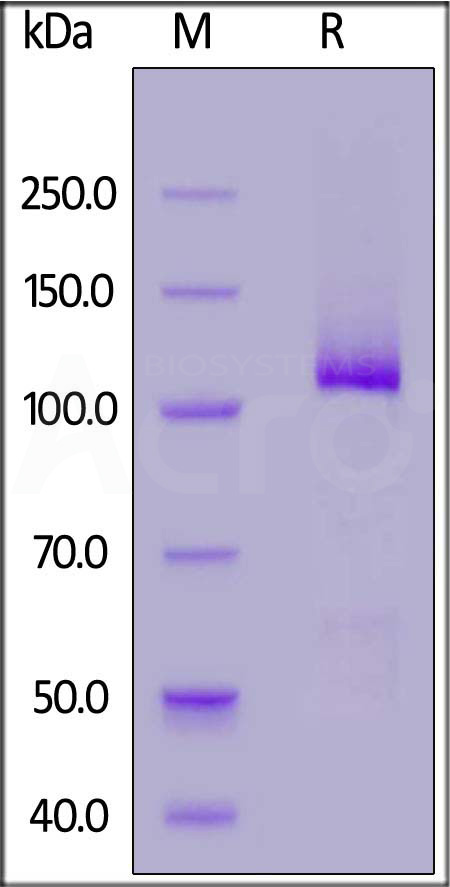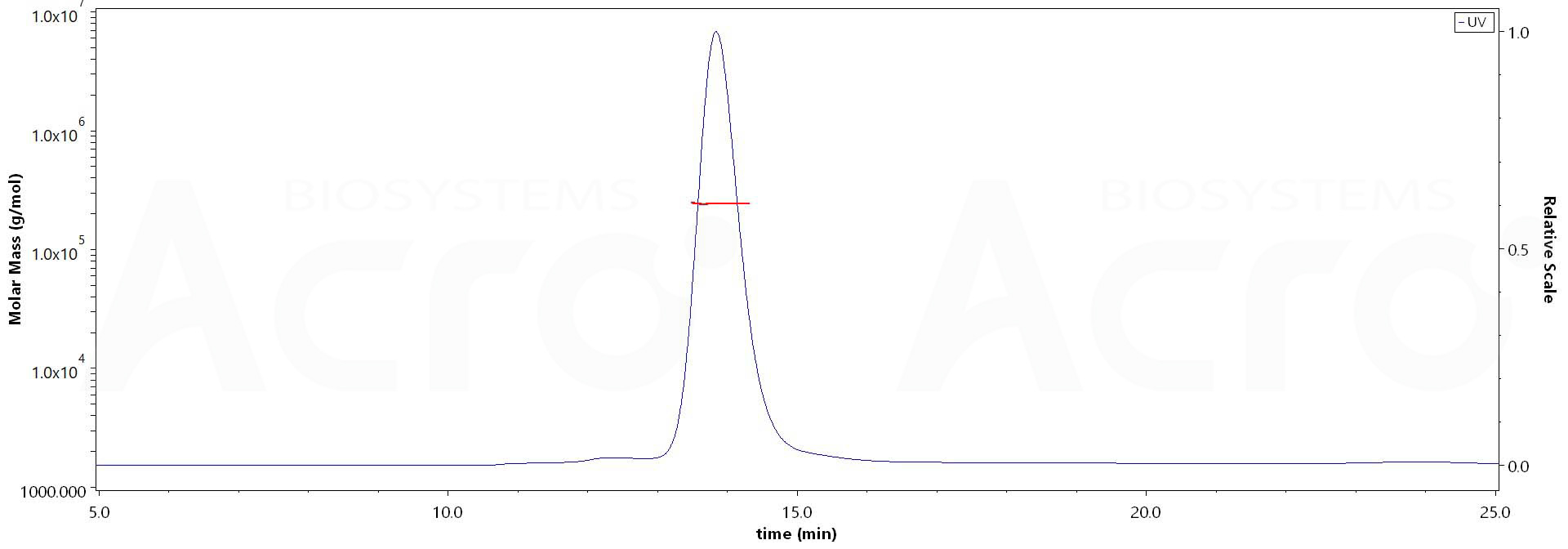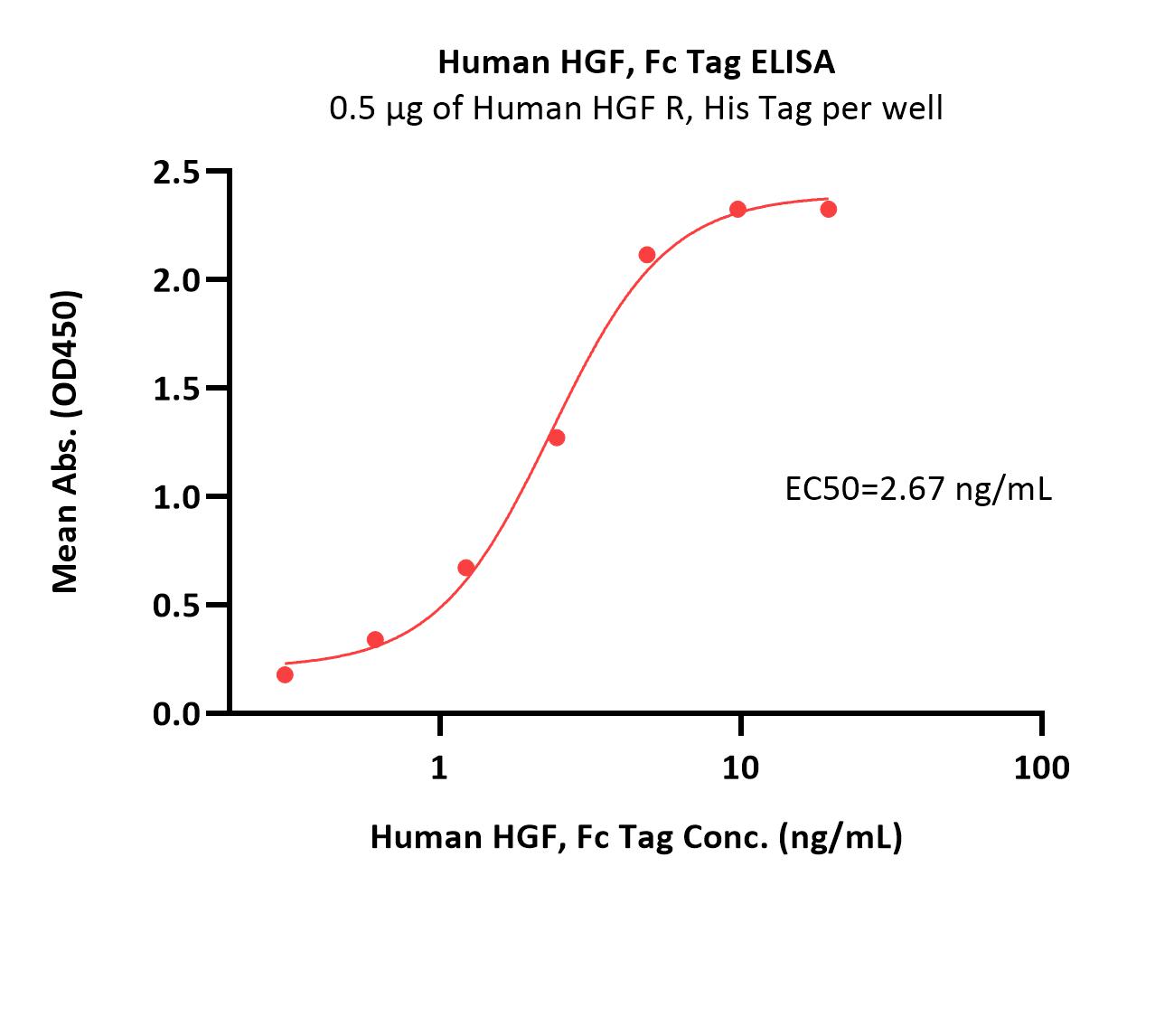分子别名(Synonym)
HGF,HPTA,SF
表达区间及表达系统(Source)
Human HGF, Fc Tag (HGF-H5253) is expressed from human 293 cells (HEK293). It contains AA Gln 32 - Ser 728 (Accession # P14210-1).
Predicted N-terminus: Gln 32
Request for sequence
蛋白结构(Molecular Characterization)

This protein carries a human IgG1 Fc tag at the C-terminus.
The protein has a calculated MW of 106.1 kDa. The protein migrates as 105-120 kDa under reducing (R) condition (SDS-PAGE) due to glycosylation.
内毒素(Endotoxin)
Less than 1.0 EU per μg by the LAL method.
纯度(Purity)
>90% as determined by SDS-PAGE.
>90% as determined by SEC-MALS.
制剂(Formulation)
Lyophilized from 0.22 μm filtered solution in 50 mM Tris, 100 mM Glycine, 0.5 mM Arginine, 150 mM NaCl, pH7.5 with trehalose as protectant.
Contact us for customized product form or formulation.
重构方法(Reconstitution)
Please see Certificate of Analysis for specific instructions.
For best performance, we strongly recommend you to follow the reconstitution protocol provided in the CoA.
存储(Storage)
For long term storage, the product should be stored at lyophilized state at -20°C or lower.
Please avoid repeated freeze-thaw cycles.
This product is stable after storage at:
- -20°C to -70°C for 12 months in lyophilized state;
- -70°C for 3 months under sterile conditions after reconstitution.
电泳(SDS-PAGE)

Human HGF, Fc Tag on SDS-PAGE under reducing (R) condition. The gel was stained with Coomassie Blue. The purity of the protein is greater than 90%.
SEC-MALS

The purity of Human HGF, Fc Tag (Cat. No. HGF-H5253) is more than 90% and the molecular weight of this protein is around 225-260 kDa verified by SEC-MALS.
Report
活性(Bioactivity)-ELISA

Immobilized Human HGF R, His Tag (Cat. No. MET-H5227) at 5 μg/mL (100 μL/well) can bind Human HGF, Fc Tag (Cat. No. HGF-H5253) with a linear range of 1.2-5 ng/mL (QC tested).
Protocol
背景(Background)
Hepatocyte growth factor (HGF) is a paracrine cellular growth, motility and morphogenic factor. Activating ligand for the receptor tyrosine kinase MET by binding to it and promoting its dimerization. Hepatocyte growth factor is secreted by mesenchymal cells and acts as a multi-functional cytokine on cells of mainly epithelial origin. Its ability to stimulate mitogenesis, cell motility, and matrix invasion gives it a central role in angiogenesis, tumorogenesis, and tissue regeneration. In addition, HGF has been implicated in a variety of cancers, including of the lungs, pancreas, thyroid, colon, and breast.























































 膜杰作
膜杰作 Star Staining
Star Staining











